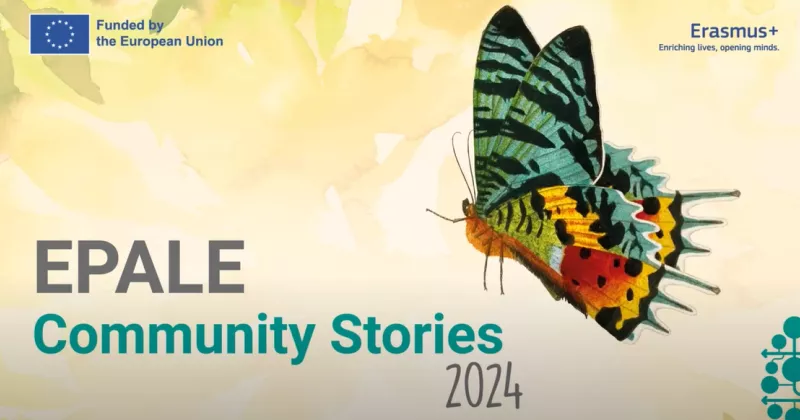Culture on Prescription started
Culture on Prescription
The project 'Culture on Prescription' is a European Erasmus+ funded project that started in January 2022 and runs until April 2024.
In the United Kingdom and Ireland, prescribing a 'recipe' for social and cultural offerings has been shown to work in reducing loneliness among socially vulnerable groups. The 'Culture on Prescription' project plans to tackle loneliness problems among adults by giving them a personal 'cultural prescription' for participating in new and tailored activities to combat loneliness and promote social inclusion.
Context
Due to the ageing population and the individualisation of society, the number of adults living alone is increasing. The loss of family, group and work ties also increases feelings of loneliness. Based on data from the European Social Survey (ESS), the European Commission's Joint Research Centre stated in 2019 that more than 75 million European adults meet with family or friends at most once a month, and around 30 million European adults regularly feel lonely. Over the past two years, these feelings of loneliness have been reinforced by the Covid-19 pandemic, which left older people in particular unable to have contact with friends or relatives for months at a time. Poor health, unfavourable economic conditions and living alone are all associated with higher rates of loneliness.
Loneliness affects all age groups. The impact of loneliness on individual well-being and social cohesion should not be underestimated. The mortality risk of loneliness is comparable to that of obesity and smoking. Persistent loneliness is further associated with unhealthy behaviour, mental problems and poorer cognitive performance. Lonely people also judge more pessimistically and feel more threatened by life situations than people who are not lonely.
Moreover, in an increasingly connected world, lonely and socially isolated people are often doubly punished: they suffer from poorer health conditions and can be stigmatised as socially inept.
The Culture on Prescription Project
The 'Culture on Prescription' project aims to introduce cultural activities facilitated by informal learning and training offers for adults. It will not be a prescription for traditional medicine, but a 'recipe' entitling people to a free educational offer that builds on and emphasises their talents, interests and strengths. This will also increase the sense of belonging and connection with the other participants.
In this way, the Culture on Prescription project will contribute to better health and increased well-being for these people. The emphasis is on health promotion rather than disease.
The Culture on Prescription project promotes shared learning. Good health is also determined by where one lives, the environment, work and opportunities to engage with the community. It is crucial for this group to get in touch with other adults in their neighbourhood or place of residence. Through shared learning and by developing social contacts, their physical and mental health should improve so that they will become more resilient in facing daily challenges.
Main objective of the project
Reducing social exclusion and loneliness, namely among those who are in more vulnerable situations (that can be older people, people living alone, people with psychological problems). We want to achieve this by getting these people interested in various cultural activities. The emphasis is on what people can do instead of what they cannot do or no longer can do. We will build on the talents, interests and strengths of the participants. We strive for a combination of cultural activities and health promotion offers in the field of adult education.
In short, we aim to:
- Spread knowledge about promising projects.
- Provide practical support to social workers and caregivers to offer easily accessible learning offers.
- Strengthen the social interaction of the participants by liaising with the local community to build a network approach.
- Teach the participants to be more resilient in everyday challenges.
Target groups
Target groups are adults who feel lonely, adults at risk of social exclusion, adults with mental health problems and older people who are interested in learning together and/or engaging in cultural activities to help change/improve their situation. We will also support facilitators who offer or are willing to offer informal learning experiences of Culture on Prescription.
Additionally we will:
- Establish contacts with health and social care staff. Create a smooth exchange between organisations, which are familiar with the target group.
- Liaise with policy makers
- Liaise with the local community
Results
To promote exchange and support we will develop, test and evaluate several concrete results. These will be collected in a toolkit and published on an interactive learning platform for facilitators and volunteers.
- We will offer 'Culture on Demand'. This is a voucher for a free educational offer, aimed at developing the cultural strengths and talents of the participants.
- We will offer courses lasting five to six months.
- Methods and tools will be developed, tested and evaluated by facilitators and participants.
- These will be collected in a 'toolkit' and published on an interactive learning platform, which is also intended for exchange and support.
- We will elaborate the compendium "Health promotion through cultural learning experiences - Facts, figures and good practice" as well as recommendations for decision-makers in municipalities and associations.
Partners
European coordination
- ISIS Institut für Soziale Infrastruktur gGmbH (Germany)
The project involves six partner organisations in six other European countries:
- Gesundheitsamt Frankfurt am Main (Germany)
- Dublin City University (Ireland)
- EAEA, European Association for the Education of Adults (Belgium)
- SHINE2Europe, LDA (Portugal)
- Asociatia Grupul de Educatie si Actiune pentru Cetatenie (Romania)
- AFEdemy, Academy on Age-Friendly Environments in Europe BV (The Netherlands)






Find out more!
Find out more about the project here:
https://culture-on-prescription.eu/